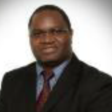
Januarius Asongu
Work place: Saint Monica University, Buea, Cameroon
E-mail: asongu2@gmail.com
Website:
Research Interests: Solid Modeling
Biography
Januarius Jingwa Asongu is Professor, President and Chief Executive Officer (CEO) at Saint Monica University (SMU). He served as an Associate Professor of Business at Herzing University, Milwaukee, WI and also served as a faculty mentor. He was also an Assistant Professor of Economics, Business and Accounting at Rockford University, Rockford, IL, where he also served as Chair of the Institutional Review Board (IRB) and was a member of the Graduate Studies Committee, the Forum Committee, Student Adviser, and founder of the Microfinance Club. As a scholar, President Asongu has published four books, over 20 journal articles, and more than 50 presentations at academic conferences around the world. His research focuses on International Business, Information Systems & Technology, Healthcare Information Systems, Strategic Management of Health Organizations and Comparative Healthcare Systems.
Author Articles
Meta-Population Modelling and Simulation of the Dynamic of Malaria Transmission with Influence of Climatic Factors
By Justin-Herve NOUBISSI Jean Claude Kamgang Eric Ramat Januarius Asongu Christophe Cambier
DOI: https://doi.org/10.5815/ijitcs.2017.07.01, Pub. Date: 8 Jul. 2017
We model the dynamic of malaria transmission taking into account climatic factors and the migration between Douala and Yaounde´, Yaounde´ and Ngaounde´re´, three cities of Cameroon country. We show how variations of climatic factors such as temperature and relative humidity affect the malaria spread. We propose a meta-population model of the dynamic transmission of malaria that evolves in space and time and that takes into account temperature and relative humidity and the migration between Douala and Yaounde´, Yaounde´ and Ngaounde´re´. More, we integrate the variation of environmental factors as events also called mathematical impulsion that can disrupt the model evolution at any time. Our modelling has been done using the Discrete EVents System Specification (DEVS) formalism. Our implementation has been done on Virtual Laboratory Environment (VLE) that uses DEVS formalism and abstract simulators for coupling models by integrating the concept of DEVS.
[...] Read more.Other Articles
Subscribe to receive issue release notifications and newsletters from MECS Press journals